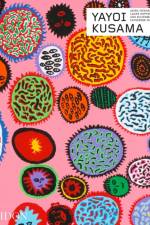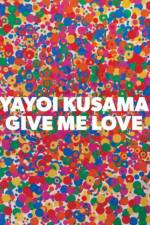av Yayoi Kusama & Akira Tatehata
619
Widely recognized as one of the most popular artists in the world, Yayoi Kusama has shaped her own narrative of postwar and contemporary art. Minimalism and Pop art, abstraction and conceptualism coincide in her practice, which spans painting, sculpture, performance, room-sized and outdoor installation, the written word, films, fashion, design, and architectural interventions. Born in 1929 in Matsumoto, Japan, Yayoi Kusama briefly studied painting in Kyoto before moving to New York City in the late 1950s. In the mid-1960s, she established herself in New York as an important avant-garde artist by staging groundbreaking happenings, events, and exhibitions. Now in her late 80s, Kusama is entering one of the richest creative periods of her life. Immersed in her studio six days a week, Kusama has spoken of her renewed dedication to creating art over the past years: “[N]ew ideas come welling up every day….Now I am more keenly aware of the time that remains and more in awe of the vast scope of art.” Yayoi Kusama: Give Me Love documents the artist''s most recent exhibition at David Zwirner, New York, which marked the US debut of The Obliteration Room, an all-white, domestic interior that viewers are invited to cover with dot stickers of various sizes and colors. Taking The Obliteration Room as its centerpiece, this catalogue reveals, in vivid large-scale plates, the transformation of the space from a clean white interior to a stunningly saturated room, with ceilings, walls, and furniture covered in myriad multicolored stickers put there by viewers over the course of the exhibition. The catalogue also includes beautiful reproductions of Kusama''s new large-format paintings from My Eternal Soul series. Ranging from bright and densely pixelated forms, to umber figures with darker blues and muted oranges, these paintings demonstrate the artist''s striking command of color, and her exceptional control over balance and contrast. Bold brushstrokes hover between figuration and abstraction; vibrant, animated, and intense, these paintings introduce their own powerful pictorial logic, at once contemporary and universal. The catalogue continues with a selection of new, large Pumpkin sculptures, a form that Kusama has been exploring since her studies in Japan in the 1950s, and which gained prominence in the 1980s, continuing to remain an essential part of her practice. Made of shiny stainless steel and featuring painted dots or dot-shaped perforations that recall The Obliteration Room, these immersive works seem created on human scale, with the tallest measuring 70 inches (178 cm). Vibrant plates capture how color, shape, size, and surface merge in these sculptures and mesmerize the viewer. Texts include a "Hymn to Yayoi Kusama" by art critic and poet Akira Tatehata and a poem by the artist herself.


